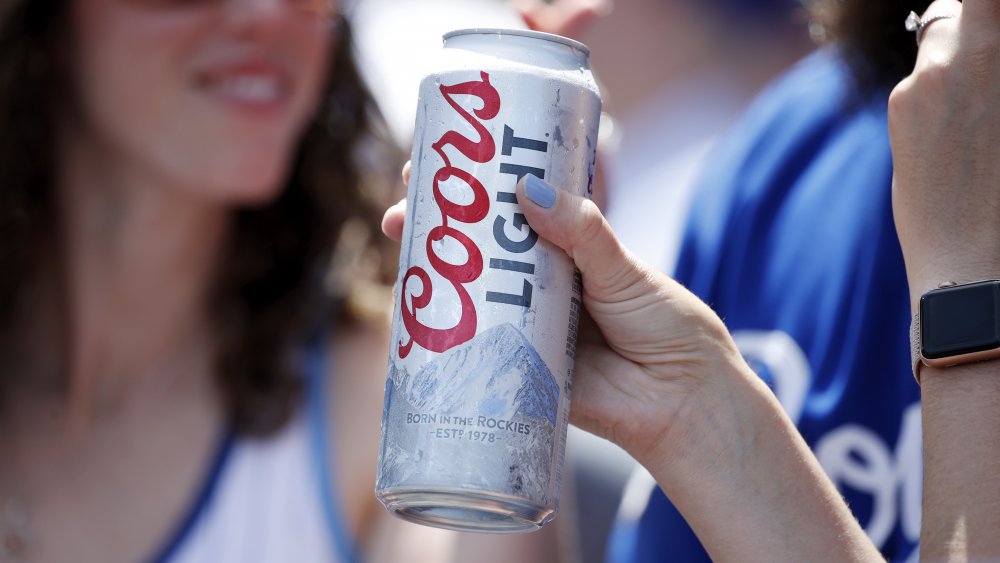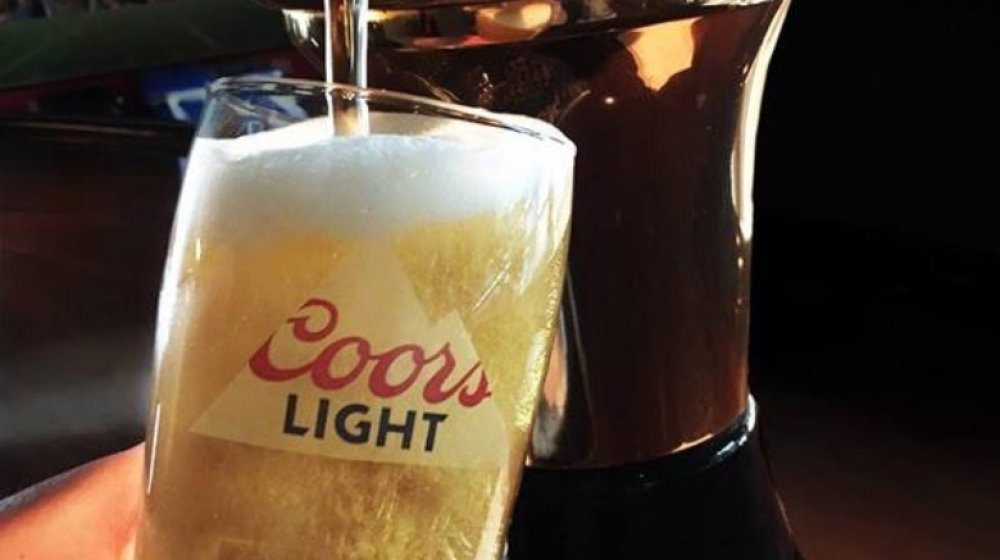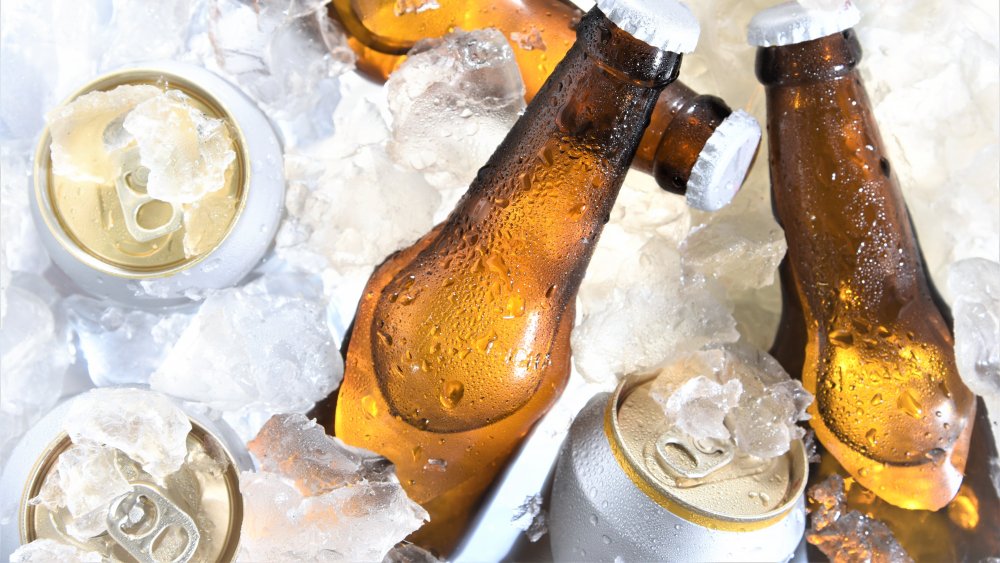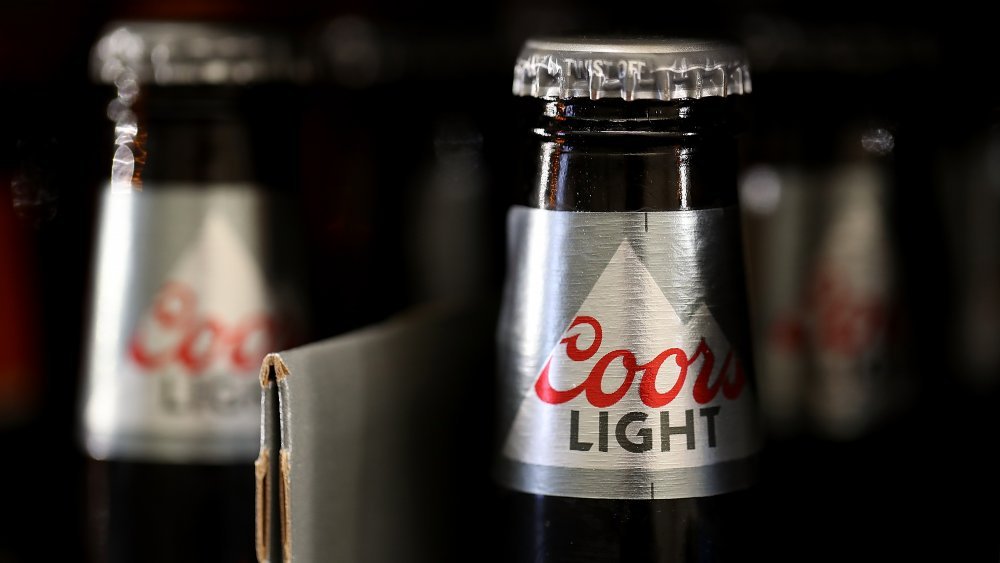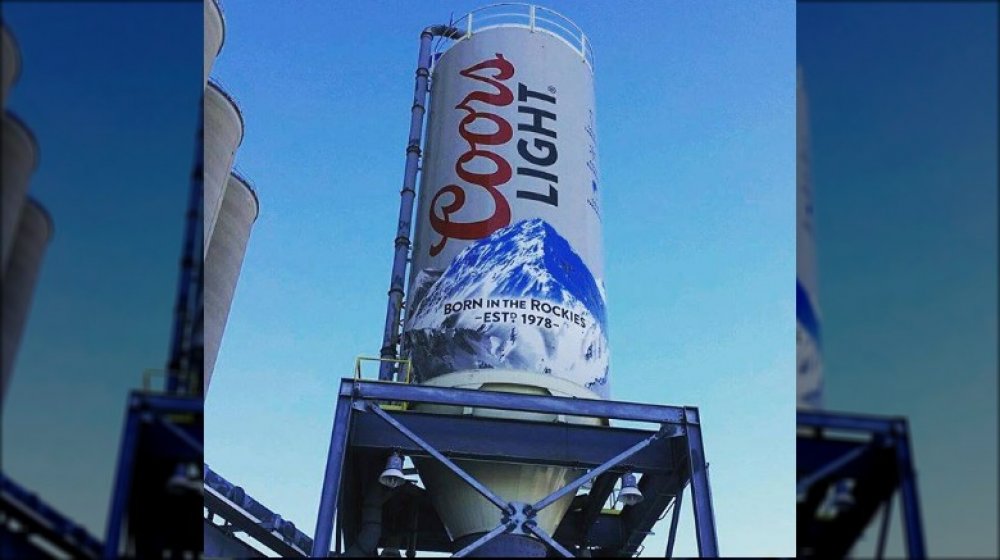Beer Expert Breaks Down Everything Wrong With Coors Light
While any domestic macrobrew is an easy target for beer snob hate, and light beers in particular seem to bring out the vitriol, beer expert Michael Murdy says he doesn't wish to condemn all such beers out of hand. In fact, Murdy, who is the founder of foodie website Robust Kitchen, admits that Coors Light is a staple beer in his household and a favorite amongst his roommates (as well as millions of other people, particularly on Super Bowl Sunday). He, himself, isn't such a fan, although he says that he does understand why so many others love the stuff: "It's low alcohol, low calorie... a refreshing, everyday drinker that has minimal effect on your gut and your wallet."
That being said, Murdy nevertheless agreed to walk us through all of the reasons why beer aficionados such as himself tend to find Coors Light to be more of a disappointment than a go-to brew. His reasons range from the flavor-related to the nutritional to the ideological.
Coors Light is low in protein
Surprisingly enough, beer can be fairly nutritious. Although regular consumption obviously has its drawbacks, it also has surprising benefits including possibly boosting your brainpower and strengthening your bones. Beer is also a better source of protein than wine, although Murdy notes that when it comes to protein content, Coors Light is definitely below par. The reason for this is the fact that Coors Light uses corn syrup as a grain base as opposed to malt or wheat, and that in comparison to those grains, corn is pretty protein-poor.
Murdy also says that protein is what makes for a foamy beer, and due to its low protein content, "... when Coors lights is poured, it creates thin bubbles that dissipate very quickly." In contrast, he explains, a beer like Sierra Nevada that is primarily made with barley is far higher in protein and will therefore pour with "a thicker, longer-lasting foam head." While Murdy acknowledges that foam isn't that important to some beer drinkers, for others it's a crucial part of the whole experience. He does admit, though, that higher protein content equals higher calorie count, so keeping Coors Light low in protein was "probably an intentional move by Molson Coors."
Coors Light is lacking in flavor
Murdy considers brewing the perfect beer to be practically a fine art, praising the craft brewers who "pride themselves on creating well-balanced lagers that have the perfect proportion of sweetness, alcohol, and bitterness," and acknowledging that "it can take a lifetime for a brewer to truly dial this in." Needless to say, he doesn't consider that the Molson Coors company put this level of dedication into developing the best-selling product that is Coors Light.
According to Murdy's breakdown of this beer's flavor profile, it has "little to no malt aroma" and says the "hop flavor ranges from none to low levels... bitterness at low level." He characterizes the beer as "boring," saying it's basically just "a clean, highly carbonated, alcohol water with a tiny hint of malt/corn flavor." Not wishing to be too judgmental, Murdy sums up his review by saying, "I don't think that Coors Light is a bad beer, I think the style they went after is just a little empty."
Coors Light is a low-quality beer
If you purchase Coors Light, it will probably come as no revelation to realize that, as Murdy says, "You're choosing quantity over quality." While noting that low-priced beer may be your best (or only) option if you're playing host to a crowd and/or on a tight budget, he says, "One of the reasons Coors Light is able to market their beer so cheaply is because they use cheaper ingredients."
Murdy does acknowledge the fact that "craft beer may be a tad more expensive," but he feels the expense is warranted due to the fact that "most of them rely heavily on high-quality malt, hops, and adjuncts when warranted."
Coors Light is a macro brew
Murdy also points out the obvious fact that, by purchasing Coors Light, you are supporting a macro brewery — and a giant multinational corporation at that. Coors Light is just one of the many, many brands owned by the Molson Coors Beverage Company, according to Reuters. Murdy accepts that "supporting macro breweries isn't necessarily a bad thing," but says it does imply that, by so doing, you're failing to patronize local craft breweries.
As he explains, "Craft breweries only survive if they have a market, and they notoriously get beat out (or bought out) by the big boys Molson Coors, Heineken and AB InBev." Particularly now, when craft breweries are going through some tough times, it's important to support them in order to ensure that we will have a future offering a choice of brews instead of a monopoly consisting of nothing but those brands produced by Budweiser, Miller, and Coors.
